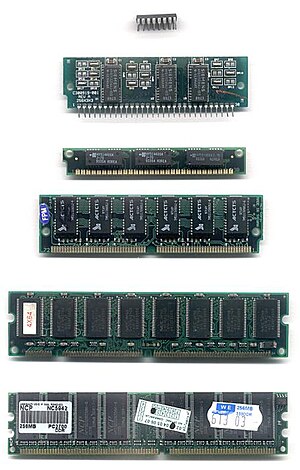Difference between revisions of "Translations:AY Honors/Computers/Answer Key/33/en"
From Pathfinder Wiki
(Importing a new version from external source) |
(Importing a new version from external source) |
||
| (One intermediate revision by the same user not shown) | |||
| Line 1: | Line 1: | ||
</noinclude> | </noinclude> | ||
| − | {{: | + | {{:AY Honors/Computers/RAM}} |
<noinclude> | <noinclude> | ||
Latest revision as of 21:46, 8 September 2021
RAM is an acronym that stands for Random Access Memory. "Random access" means that the contents of the memory can be accessed in any random order. The term was originally coined to differentiate it from serial memory (such as data stored on a magnetic tape). The contents of a serial memory could only be accessed sequentially. RAM is a volatile memory, which means that when the power is turned off, the information stored there is lost.
RAM can be accessed very quickly by the computer. Its contents can be both read and written. Most programs on a computer are loaded into and executed from RAM. RAM is also used as "scratch space" where the computer stores the results of calculations.

